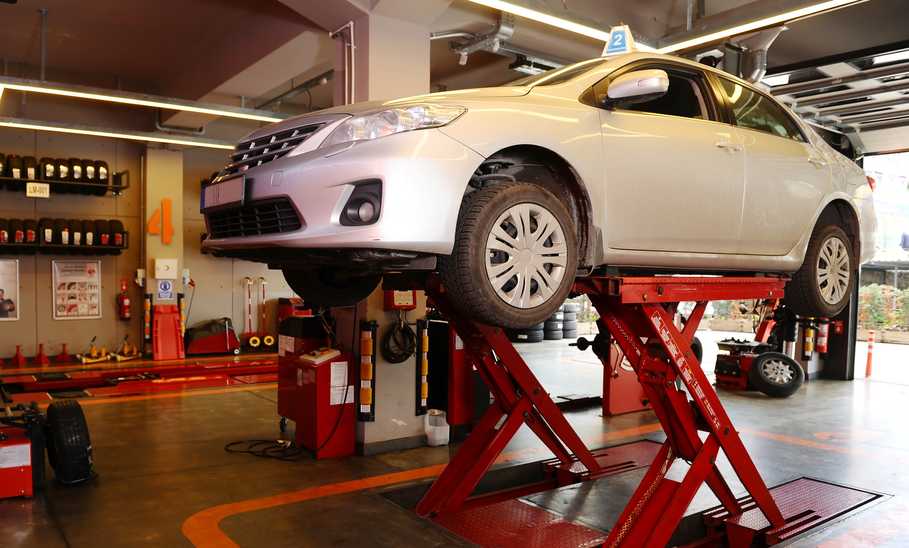Are Extended Car Warranties Worth It?

Our evaluations and opinions are not influenced by our advertising relationships, but we may earn a commission from our partners’ links. This content is created by TIME Stamped, under TIME’s direction and produced in accordance with TIME’s editorial guidelines and overseen by TIME’s editorial staff. Learn more about it.
Extended car warranties (sometimes called extended service plans) are agreements to cover the cost of specific repairs to a vehicle. They’re sold by vehicle manufacturers and a variety of other companies. Extended warranties are available with varying levels of coverage, up to and including bumper-to-bumper. Some plans even offer options like roadside assistance.
Deciding whether an extended car warranty is worth it means considering several factors, including your car’s reliability, your ability to keep up with routine maintenance, and your need for peace of mind.
An extended car warranty is essentially insurance for vehicle repairs. If you buy an extended warranty, your plan will cover the cost of vehicle repairs, including necessary replacement parts.
In order to be covered, these repairs may have to take place at an approved service provider. Your insurer might also require you to get pre-approval for repairs or towing. If the vehicle manufacturer provides your extended warranty, you’ll probably need to get your repairs done at a dealership. Extended warranties typically provide coverage for two to seven years, though some plans last longer.
Some extended car warranties also have a deductible for repairs. For example, if your deductible was $100 per visit, you would need to pay the first $100 in costs before your warranty kicked in. Deductibles are typically can run anywhere from $50 to $100, although some may be more.
Extended car warranties cover your vehicle’s major systems, including:
The type of extended warranty you buy will dictate exactly what’s covered.
In 2022 and early 2023, the cost to repair cars rose nearly four times faster than the rate of inflation. The cost of labor and car parts has risen. The increased use of expensive electronics in modern vehicles has also contributed to the rising costs.
RepairPal.com states these are the costs of some common car repairs in 2023.*
| Minimum | Maximum | |
|---|---|---|
Suspension ball joint replacement | $244 | $335 |
Alternator replacement | $610 | $796 |
Water pump replacement | $742 | $882 |
Head gasket replacement | $1,850 | $2,146 |
Turbocharger replacement | $1,904 | $2,198 |
Automatic transmission replacement | $5,091 | $5,290 |
*As of March 15, 2023
Extended car warranties typically exclude regular maintenance items such as oil changes and tune-ups. Nor will they cover consumable items such as brake pads, tires, and batteries.
And note that you may void your warranty if you don’t take your car in for routine maintenance according to the manufacturer’s recommended schedule.
You’ll most likely want to buy an extended warranty through a car manufacturer or through a third party that isn’t associated with the manufacturer.
Car manufacturers such as Ford, Chevrolet, Hyundai, and others offer extended warranty plans. You may be offered the option to buy a plan when you buy a new or used vehicle at a dealership (adding the warranty cost to what you pay for the car). However, you can usually add a manufacturer’s warranty at any time before the expiration of the factory warranty. To see the manufacturer’s extended warranty options, visit your car manufacturer’s website or contact a local dealership.
Third-party warranties are offered by companies not affiliated with your car’s manufacturer. You can buy a third-party extended car warranty at any time for a new or used car. However, some warranties limit what they’ll cover (for example, some companies may not cover cars older than 10 years or with more than 100,000 miles). Visit company websites to view your coverage options, get quotes, and complete a purchase.
Some popular third-party extended car warranty providers include:
The cost of an extended warranty will depend on your car’s condition and mileage, the amount of deductible you choose, and the type of plan you buy.
According to a recent review at cartalk.com, you’ll most likely need to pay at least $60 to $130 per month for a third-party extended car warranty. But considering the cost variance between companies, the multiple coverage options available, and the effect your car will have on what you pay, your best approach is to contact several companies, discuss your needs, and see your cost options.
Manufacturer extended warranties vary in cost as well. According to one review, the average cost of Ford’s plan, which provides eight years of protection, is approximately $3,000.
When shopping for an extended warranty, you’ll notice multiple coverage options. The names of these options may vary by provider (for example, CARCHEX uses a Bronze, Silver, Gold naming system), but in general, they include the following:
Bumper-to-bumper warranties are the most comprehensive plan type, with coverage for every system in your vehicle, including the powertrain, electrical system, fuel system, suspension, and body/frame.
Powertrain warranties are the second-most comprehensive plan type, covering the engine, transmission, driveshaft, and some electrical components.
The next step down are drivetrain-only warranties. These provide coverage for the transmission, driveshaft, axles, and wheels.
Wrap warranties are designed to supplement powertrain warranties. They provide coverage for the rest of the vehicle. A powertrain warranty and a wrap warranty essentially “add up” to be a bumper-to-bumper warranty.
Corrosion warranties cover the body, frame, and other materials if they’re damaged by rust or corrosion.
Extended car warranties have some advantages and disadvantages. If you’re considering buying an extended warranty, you owe it to yourself to understand both sides.
| Pros: Extended car warranties | Cons: Extended car warranties |
|---|---|
Not having to worry about car breakdown expenses. | Paying for something you may never use. |
Allow you to drive your car longer without worrying about repairs related to normal wear and tear. | Coverage limitations, including exclusion of routine maintenance and consumable items such as tires and brake pads. |
Multiple plan levels allow you to choose the coverage you need. | If you buy a long-term plan and then decide to sell your car, you may not be able to transfer coverage to the new owner. |
You may void the warranty if you don’t keep up with routine maintenance. |
Here are some questions to ask when deciding whether you should buy an extended car warranty.
A vehicle with a reputation for unreliability is more likely to need expensive repairs at some point in its lifetime. In that case, you might be more apt to consider an extended warranty. You can research your vehicle’s reliability at consmerreports.org, although you’ll need to purchase a subscription, or repairpal.com.
Remember that extended warranties typically last from two to seven years. So if you think you’ll own your car for a short time, an extended warranty might not make sense.
If you’re planning on selling your car after a short period of time, you may still want to consider purchasing an extended warranty. Some plans allow you to transfer coverage to a new owner, which might allow you to sell your car for a higher price.
Extended warranty plans typically require you to follow all of your vehicle’s routine maintenance recommendations.
While repairs such as a transmission replacement can be quite costly, they are also relatively rare. This is especially true for vehicles that are maintained.
If the prospect of having to pay for an unexpected repair keeps you up at night, then you may prefer the security that comes with having an extended warranty.
While repair costs may be rising, cars are also more reliable than ever. So while nobody wants to pay a mechanic hundreds or thousands of dollars, the good news is that expensive repairs are less likely to be needed than in the past. The flip side is that if you buy an extended warranty, you’re more likely to pay for coverage you’ll never use.
What might make more sense than spending thousands of dollars on an extended warranty is to set that money aside in an emergency fund to help pay for any repairs that you might need in the future. You’ll also have that money available for any other emergencies.
Even if you don’t purchase an extended warranty, you should keep up with your car maintenance. Having your oil and other fluids changed and other services performed at the manufacturer’s recommended intervals can help keep your car running smoothly. Having a professional (and trustworthy) mechanic look at your car periodically may also identify any minor problems that can be addressed cheaply so you can avoid more expensive problems.
Expect to pay at least $60 to $130 per month for an extended car warranty. However, note that prices vary between companies. Many companies offer multiple plans allowing you to customize coverage to fit your needs and budget.
If the used car is rated as unreliable and you don’t want to worry about unexpected repair costs, an extended car warranty may be worth the money.
If you plan to keep the car after the factory warranty period runs out and you’re concerned about its reliability, buying an extended warranty from a dealership may be the right choice for you.
It’s recommended to wait to purchase an extended car warranty until shortly before the car’s factory bumper-to-bumper warranty expires. The disadvantage of buying an extended warranty when you buy the car is that coverage won’t be in effect until the factory warranty expires. And if you decide to sell the car, or it’s stolen or damaged and declared a total loss by your insurance company, you’ll have spent money on a warranty that you’ll never use.
The information presented here is created by TIME Stamped and overseen by TIME editorial staff. To learn more, see our About Us page.



